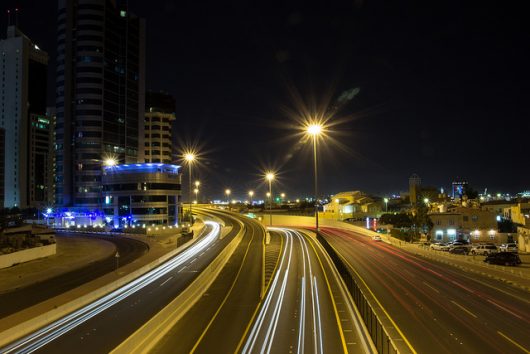Kuwait’s Stateless Population

Growing up, Mona Kareem was not a victim of childhood torment because of her nationality—but, rather, her absence of nationality. She is a member of Kuwait‘s stateless population. From an extremely young age, Kareem knew she did not quite belong. Her fellow students, and even her teachers in Kuwaiti’s free, public schools seemed to treat her more as an apparition than an individual.
One could imagine why Kareem accepted an academic scholarship in 2011 to study in the United States at SUNY Binghamton. Though this decision came with a measure of arduous ambiguity concerning how and when she may see her family again—the act of leaving her ‘home’ country of Kuwait did not weigh heavily of Kareem, given that this ‘home’ refuses to recognize her existence. She is just one of many that fall under Kuwait’s stateless population.
According to the CIA World Factbook, Kuwait is an extremely wealthy country with little measurable poverty. Bordering the Persian Gulf, lodged between Iraq and Saudi Arabia, this tiny country—slightly smaller than the state of New Jersey—holds more than 6 percent of the globe’s crude oil reserves. This asset accounts for more than 50 percent of its GDP, and 92 percent of its export revenue.
Sitting on such an expansive source of wealth allows Kuwait to take care of its citizens. Earlier this year, Business Insider placed Kuwait sixth on their ranking of richest countries based on GDP per capita. With a population of just above 4 million, the country brings in the equivalent of an annual $71,263 per person.
Each resident has access to free healthcare, education up to (and including) the university level, and monetary allowances from the government for major life occasions. If a Kuwaiti was to be married, for example, they would receive $19,000 American dollars for their doing so—half acting as an interest free loan, and the other half as a complimentary gift toward their future.
In 2004, Oprah Winfrey interviewed Princess Zain Al Sabah on her nationally-viewed show, confirming the extravagant lifestyle embraced by her and the majority of her ‘friends.’ She went on to explain that this lifestyle is accessible not only to royalty, but the ‘common,’ everyday citizens of Kuwait.
However, the contention with Kuwaiti’s government does not lay with the Kuwaiti common, nor the royal ‘friends’—but those that perhaps aren’t recognized as ‘friends’ at all. Unfortunately, there is a large proportion of individuals living in Kuwait that do not qualify for the benefits the Princess emphasized. In fact, they do not qualify as citizens; according to the Kuwaiti government, they do not exist. This is Kuwait’s stateless population.
Kareem and her family are known to the Kuwaiti people as ‘Bedoons,’ translating to mean ‘without’ in Arabic. They are descendants of Bedouin tribes, nomadic groups who have raised cattle and tended to crop across the Middle East and Arabian peninsula for centuries.
Traditionally, the Bedouin tribes have led self-sufficient lives, migrating at the turn of the season and rejecting modernity. Of course, tradition changes with the time, and descendants of this nomadic lifestyle have begun to seek more than perpetual exodus to fulfill their lives.
In the late 1950’s, before declaring sovereignty 1961, Kuwait’s government declared that all citizens must formally register before the country is recognized. To qualify for nationality one must meet the following requirements: one must have had settled in Kuwait prior to 1920 and maintained residence in the region; one must be a person in or outside Kuwait whose father is a Kuwaiti national; or one that can prove to have been born in Kuwait, even if their parents are unknown.
At the time of registry, however, a large proportion of Kuwaiti inhabitants lived in rural regions, lacking both the necessary paperwork and literary skills necessary to understand the weighty context of this request. Consequently, around 300,000 Kuwaiti people, including the ancestors of Kareem, did not become citizens.
Today, this would equate to one-third of the native population living in Kuwait. Those that had forgone the process of citizenship were left ‘without’ nationality. Thus, the majority of descendants remain without nationality—otherwise known as Kuwaiti’s ‘Bedoons.’
For several years post-independence, Kuwait’s stateless population continued to live unchallenged by their lack of nationality. Most kept to their tribal traditions, living outside of urban areas and seeking government assistance only on rare, emergency occasions. If public education was sought for a child, the Kuwaiti government allowed schooling for the Bidoon—despite their statelessness.
It was only after heightened tensions in the Middle-East in the late eighties that xenophobia began to emerge as a weapon against the Bidoon people. After a large portion of Kuwait’s people fled during the Iraqi invasion in 1991, only about half of the Bedoons were allowed re-entry.
Of course, Kuwait’s stateless population returned to a different world. Suspicions of Iraqi alignment ran rampant throughout the nation. Consequently, the Bidoon’s lack of formal nationality often receiving the brunt of this hostility.
To this day, over 100,000 Bedoons live without recognition in the only country they have ever called home. Most dwell in rural areas, exposed to unsuitable living conditions. Regardless of their ability to trace back their native roots, they are repeatedly denied citizenship and are unable to qualify for basic government subsidies on healthcare, education and housing/food allowances. On top of this, there still exists an equal number of stateless individuals in neighboring countries, perceived as refugees and denied access to their home altogether.
In a nation that can afford not only to meet the needs of their citizens, but encourage wealthy and prosperous lives—it is unfortunate that such a great number of its native people are living in a way that threatens their basic security.
In order for the world to understand the demographic of the Kuwaiti people and the true ‘wealth’ of this small nation, the government must first open its doors to Kuwait’s stateless population.
– Briana Fernald
Photo: Flickr
